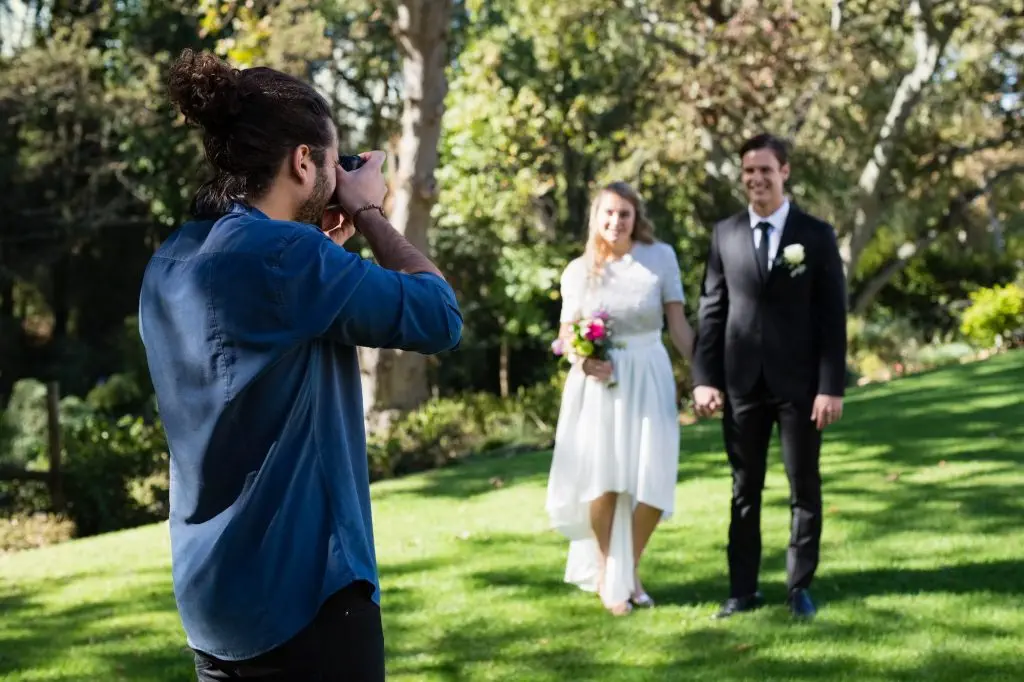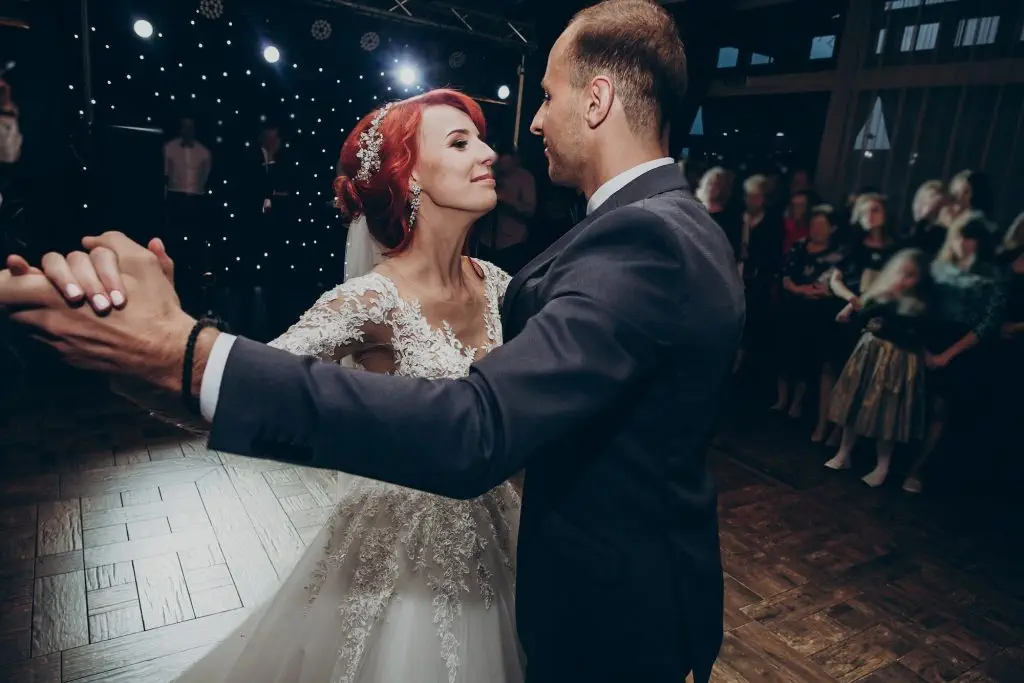We’ve had a lot of people ask us about wedding photographers and how you can find the right one for you. There’s so much information out there that it can be hard to know where to start, but our aim is to help you find a photographer who will capture your special day perfectly! Let’s take a look at what goes into choosing a wedding photographer, starting with the most important question: how much does it cost?
The national average cost of a wedding photographer is $2,000
The national average cost of a wedding photographer is $2,000, with most couples spending between $1,000 and $4,000. But how much you’ll actually spend on your wedding photographer depends on a few factors, including your photographer’s experience, the number of hours they’ll be shooting, the number of photographers you’ll need, the number of prints and albums you want, and whether you’re getting married in a high-demand wedding season. Also see- wedding photographer average cost.
What are the cost factors in photography?

The cost of equipment, software and insurance are all part of the photography budget. Equipment can range from zero to thousands of dollars depending on what you need and how often you use it. Software costs vary as well but if you purchase a new version every year or two, it’s not too bad. Insurance costs vary depending on your location and the type of work that you do but they can be quite expensive especially when working with large groups such as weddings or events where there are many people around who may be injured if something goes wrong.
Travel costs also vary depending on whether or not the photographer lives in an area where he/she must fly into another city just to get started with their business (or even more than once). If traveling is required then travel expenses must be factored into your budget as well as any necessary transportation such as rental cars which will add up quickly when considering multiple trips per day/weekend during peak seasons like summertime vacations for example (or winter holidays for those who live farther north!).
Studio space is another expense factor because most studios have monthly rent fees plus utilities charges so those too should be considered when planning ahead financially before starting up any new project(s). Studio assistants are another common expense factor because everything takes longer with two people working instead than one person doing everything themselves so having someone else available adds up fast in terms of both money spent plus time away from family members who might otherwise enjoy spending some quality time together without distraction(s) nearby…
Are there any hidden extra costs?
There may be additional costs for:
- Additional hours or days of coverage. You’ll want to be aware of this, as some photographers charge extra for the time beyond their included package.
- Travel expenses. If your wedding is in another city, or even another state, you can expect travel expenses from your photographer. The farther away they have to go, the more they’ll charge you (and probably deserve).
- Photo albums and prints—especially if not included in a package. Some photographers include these items but others do not and will charge separately for them after the wedding day has been completed.
Do they include an engagement shoot in the package?
You’ll want to be sure that your photographer is willing to take on engagement sessions. Engagement sessions allow you and your partner to get comfortable in front of a camera, so by the time you make it down the aisle, the wedding day won’t seem like anything but a fun party! A good engagement shoot can also give you an idea of what kind of style your photographer will have at the wedding itself—so when it’s time for all those formal shots or family portraits, you’ll know exactly what to expect.
You’ll also want to see if they include any other services in their packages or if they offer them separately from their main package prices. Some photographers may offer special wedding albums that are custom designed specifically for each couple, while others may provide professional editing services such as retouching out unwanted blemishes or dark shadows under eyes on portraits taken during formal shots with lots of flash lighting (which tends cause those unfortunate side effects). If there are extras like these available at additional costs above and beyond what’s included in their regular packages then keep reading!

How many photos do they include?
Your wedding photographer should have a clear idea of what’s included in the package that you’re paying for. Do they include all of your photos? If so, how many? And does each additional photo cost extra or are there any additional fees and charges associated with taking more than the allotted amount of images (or even ordering them)? How many photos do they include in their gallery? Will you have access to all images taken throughout the day and night or only those used on social media or in their portfolio?
How many photos do they include in a photo book? How many pages will it be and what type of paper is used (e.g., thick paper vs thin)? What size will it be: standard 8×10 or smaller 4×6 prints? The quality of these items can vary greatly from one provider to another, so make sure that this is clear up front before booking!
What is their editing style?
There are many different editing styles a wedding photographer can use. Some photographers prefer to use more traditional edits, while others like to experiment with their editing techniques.
You want to make sure you know what kind of editing style your photographer uses so you can decide if it’s something that works for your wedding.
It’s also important to think about how popular the style is amongst engaged couples as well as whether or not it’s appropriate for the type of event you’re having.
What type of equipment do they use?
Wedding photographers use a variety of equipment, from DSLR cameras to drones. They also use flash, video and other gear. The equipment they use depends on the type of shots they want to capture. Some photographers use software to edit pictures and videos.
Some wedding photographers also have their own personal branding on social media sites such as Facebook and Instagram where they can advertise themselves as professionals in their field of expertise (e.g., advertising themselves as “a #weddingphotographer”).
Do they have insurance for their work and equipment?
In the event of a mishap, you want to ensure that any damage or loss is accounted for. The most important thing to ask your photographer is whether they have insurance for their work and equipment. Sometimes photographers will only have coverage for their equipment, but not their work. Other times, they don’t carry any at all!
If you’re wondering how to find out if your photographer has insurance or not, it’s easy: just ask them directly!
Do you need to pay for a photographer’s travel costs?
You should know that travel costs are generally not included in the price. If you want your photographer to travel, they will need to be compensated for their time, gas, and other expenses. If you’re planning a destination wedding or a wedding at a venue far from where the photographer lives and works, this could mean paying hundreds of dollars more than expected.
If you’re thinking about having your wedding at an exotic locale like the Bahamas or Bermuda (or even just across town), make sure that you discuss travel costs with your wedding photographer before booking them for your big day!
What is their backup plan if something goes wrong on the day (e.g. sickness) and are you covered in that eventuality?
Photo booths are also a popular choice for weddings, especially after the ceremony. If you’re opting for this option, make sure that your photographer also has experience operating them.
The cost of hiring a wedding photographer can vary greatly depending on where you live and how much they charge. On average, most photographers charge between $2,500 – $3,000 plus another $100 or so per hour to shoot events such as engagements and family portraits.
A good way to find out if your photographer is worth their price tag is by looking at what kind of equipment they use and how many awards they have won over the years (if any).
How many photographers will be attending your wedding?

What’s the ideal number of wedding photographers? This can be a tricky question to answer — depending on your venue, budget and style, one photographer may be more than enough for your needs.
If you have a large guest list and are looking for a traditional experience with lots of candid photos on the dance floor, then two photographers is probably going to be ideal. The second photographer can capture all those moments when one person isn’t looking at the camera or isn’t being photographed by the first photographer (think: dance floor pictures). That way, when it comes time to edit your photos together into an album or share them online with friends and family around the globe, there will still be plenty of options available.
Can you visit their studio first before making your decision (not always possible, but it’s worth asking)?
As we said, there’s no one way to be a wedding photographer. Some studios will want to meet you in person before they sign off on your event. But don’t worry—that’s not because they’re trying to sell you something. It’s because they care about making sure that the right fit is made between their studio and your wedding day (and beyond).
You’ll have a chance to see where the photographer works and how he or she does it. You’ll also get an idea of what equipment he or she uses, how he or she interacts with clients and staff members, whether he or she offers unlimited revisions (which is worth noting if you’re looking for a more budget-friendly option), etc.
Taking a look at the cost of a wedding photographer can be complicated. There are many factors to consider when looking at price, and there are even more considerations when it comes to the value you get for your money. While we all have budgets in mind when hiring someone, it’s important not only to consider those costs but also to think about what they mean in terms of quality and experience.

